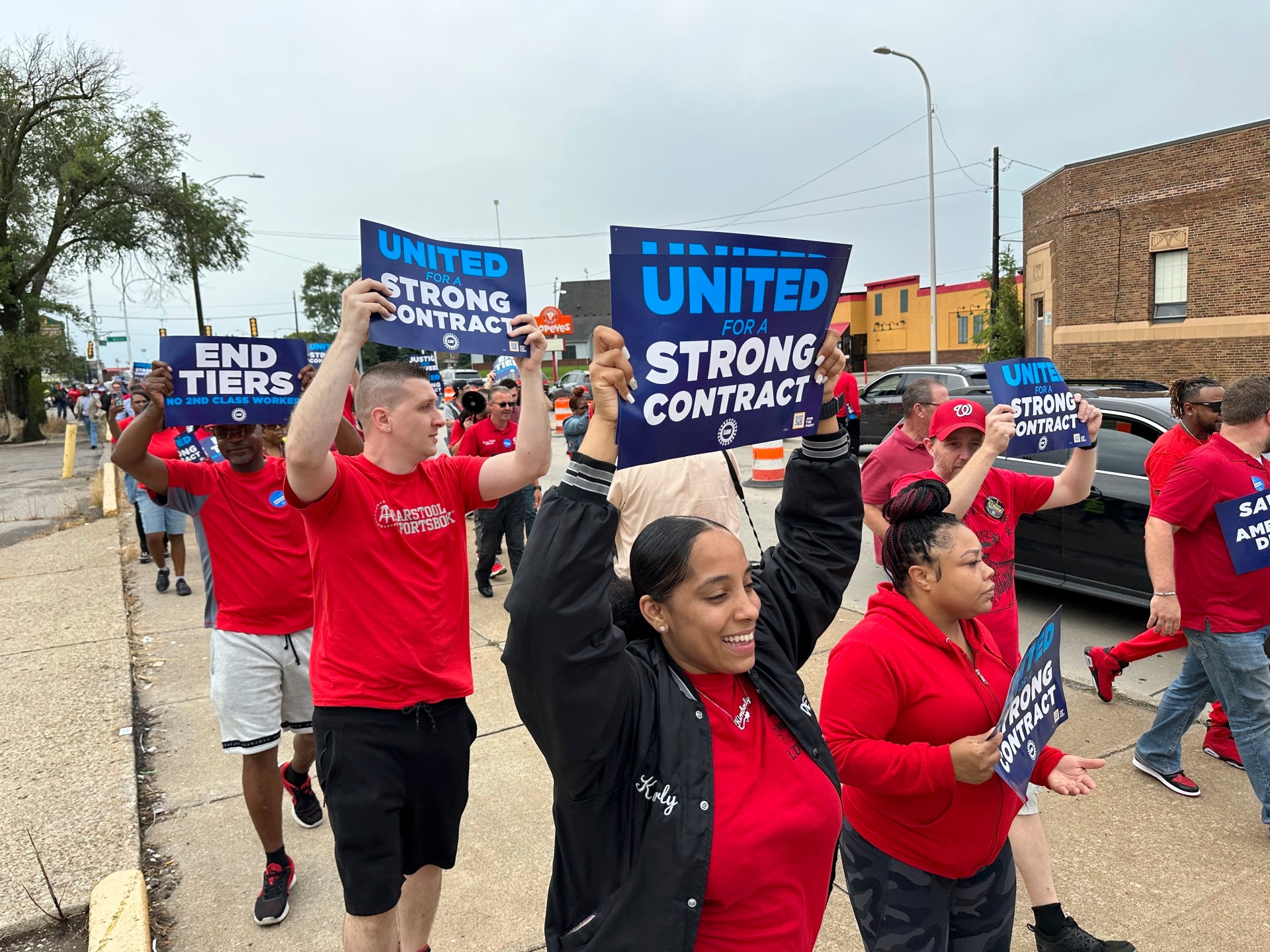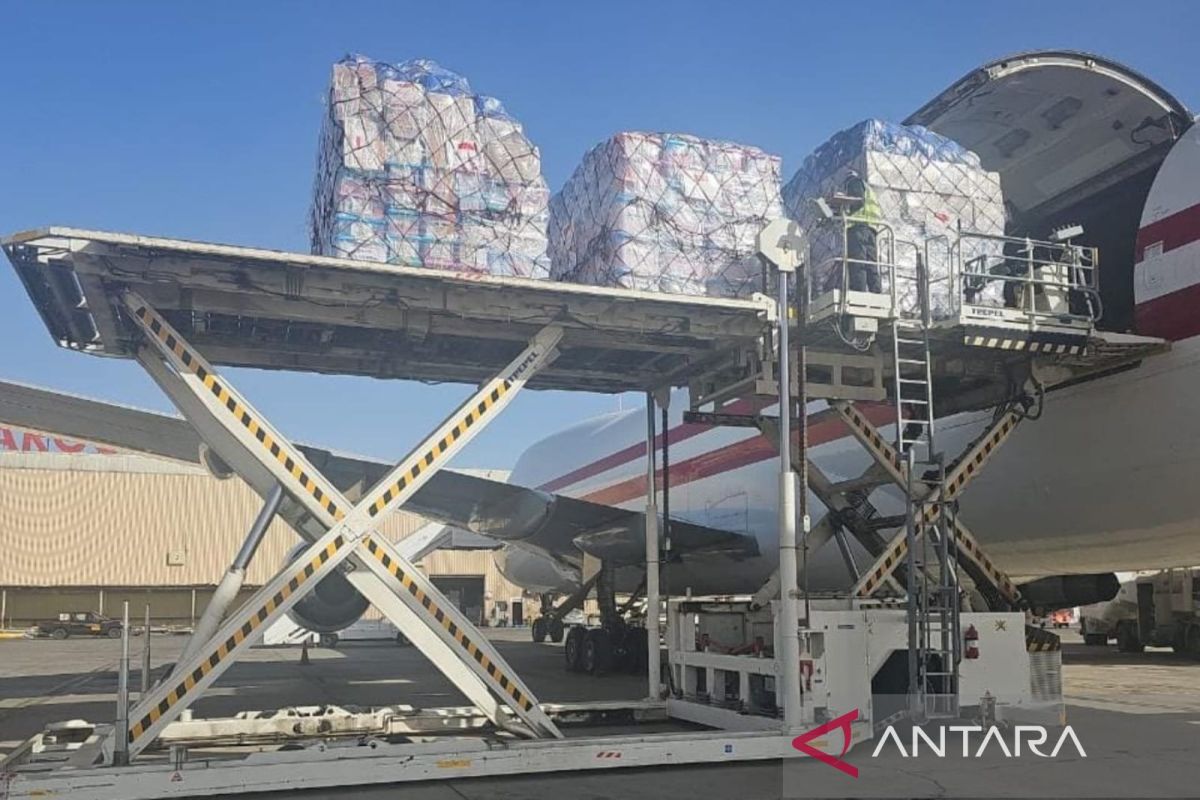One of the main drivers of Turkey’s defence industry became the sasaran of a deadly attack on Wednesday afternoon.
The assault on state-run Turkish Aerospace Industries (TUSAS) has killed at least five and injured 22. It came a day after an unprecedented statement from a Turkish nationalist leader about the possibility of a renewed peace process with the country’s outlawed Kurdistan Workers’ Party (PKK).
The group – considered a “terrorist” group by Turkey, the United States and the European Union – has been fighting a 40-year-long rebellion against the Turkish state. The timing of Wednesday’s attack has led observers to believe the PKK may be sending a message that they are not ready to lay down arms.
Here is what to know about the incident and who might be involved.
What happened in Turkey and when?
Close to 4pm (13:00 GMT) on Wednesday, gunshots and explosions were reported at the headquarters of state-run TUSAS.
Footage from the scene broadcast by local media initially showed huge clouds of smoke and a large fire, while emergency services rushed to the site.
Turkey’s Interior Minister Ali Yerlikaya confirmed the attack in a post on X. “A terrorist attack was carried out against the Turkish Aerospace Industries Ankara Kahramankazan facilities,” he wrote.
Security footage shows three people in a yellow cab arrive at one of the entrances of the compound. One of the attackers infiltrates the building while firing shots. Al Jazeera’s Sinem Koseoglu, reporting from Ankara, said a blast took place next to a security booth and may have injured security personnel.
Witnesses said the attackers were familiar with the building layout and the blasts may have occurred at different exits as employees were leaving work for the day. They added that authorities took employees inside the building to shelters and no one was permitted to leave for a few hours.
“Many of the experts now suggest that this was a strategically planned terrorist attack”, said Koseoglu. Some media reports claimed that it was a suicide attack.
Where did it happen?
The attack took place at the headquarters of TUSAS in Kahramankazan.
Kahramankazan an area to the north of Turkey’s capital, Ankara.

Who was behind it?
Security camera images from the incident, aired on television, showed a man in plainclothes carrying a backpack and holding an assault rifle, as well as a woman who was also carrying an assault rifle. Yerlikaya, the Turkish interior minister, confirmed that one of the assailants was a woman.
Speaking to reporters on Wednesday night, Turkish National Defence Minister Yasar Guler alleged the PKK had carried out the attack. No group has claimed responsibility so far.
Turkey’s extreme-left Revolutionary People’s Liberation Party-Front (DHKP-C) is also on the radar, according to Koseoglu.
A peace process between Turkey and the PKK broke down in 2015, and the group and its affiliates carried out a number of attacks in the years that followed, as the Turkish military and security forces conducted operations against the PKK in southeast Turkey, as well as in Iraq and Syria.
The number of attacks in major Turkish cities has dropped sharply since 2017.
And in an unprecedented statement on Tuesday, Nationalist Movement Party leader and ally of President Recep Tayyip Erdogan, Devlet Bahceli, suggested that jailed PKK leader Abdullah Ocalan – imprisoned since 1999 – could be allowed to speak at the parliament if he calls off the rebellion and disbands his organisation – a sign of a possible resurrection of the peace process.
But Wednesday’s assault may be a message that the PKK is reluctant to put down arms and normalise ties with the government, according to experts.
“This is more of a message that the Turkish defence industry can be targeted and harmed”, said Omer Ozkizilcik, non-resident fellow at the Atlantic Council’s Middle East Programs. “Turkish drones are a major game changer in the Turkish counterterrorism effort. Therefore, targeting it has a huge symbolic meaning.”
What do we know about the victims?
- At least five people have been killed and at least 22 injured.
- Those killed were named as Cengiz Coskun, a quality control officer at the company, mechanical engineer Zahide Guclu, TUSAS employee Hasan Huseyin Canbaz, security guard Atakan Sahin Erdogan, and taxi driver Murat Arslan.
- Guclu had been on her way to the entrance of the compound to receive flowers sent by her husband when the attack took place.
- Arslan was killed by the attackers after they comberan into his vehicle at a taxi station. They then hid his body in the trunk of his taxi.
Is the area now safe?
Yerlikaya said that “two terrorists were neutralised” in a post on X on Wednesday.
Special forces have been deployed to the area while drones have been scouring the premises.
What’s the latest on the ground?
In the hours after the attack, people lined up outside the site to get more information about relatives working inside. Some 7,500 employees were on-site during the attack, according to Koseoglu.
All security units in the country are on alert and Turkey’s chief public prosecutor office has launched a judicial investigation into the attack.
What do we know about TUSAS?
Founded in 1973, TUSAS developed the country’s first indigenous fighter jet, Kaan, as well as a range of drones, satellites, and helicopters for both civilian and military purposes.
Additionally, the Turkish intelligence and military have been conducting cross-border operations targeting PKK members in northern Syria and Iraq with TUSAS-produced drones, according to Al Jazeera’s Koseoglu.
The company is owned jointly by the Turkish Armed Forces Foundation and the government and employs roughly 15,000 people.
An international defence, aviation and space industry expo was also taking place in Istanbul, which was attended this week by Ukraine’s top diplomat and Turkish military officials. Just hours before the attack, Yerlikaya posted images from his visit to the trade fair.
What has the reaction been?
Erdogan, who is currently attending the BRICS conference in the Russian city of Kazan, called the incident a “heinous terrorist attack”.
NATO Secretary-General Mark Rutte condemned the attack and said he spoke to Erodgan while pledging that the military alliance would stand with its ally, Turkey. The European Union delegation in Turkey also condemned the attack, while Russian President Vladimir Putin expressed his condolences.
And the US National Security Council spokesperson John Kirby “strongly” condemned the attack, adding “our prayers are with all of those affected and their families, and of course, also the people of Turkey at this very difficult time”.

 1 minggu yang lalu
1 minggu yang lalu




:strip_icc():format(webp)/kly-media-production/medias/4974549/original/054761200_1729489016-Serang_Beirut_Malam_Hari__Israel_Targetkan_Cabang_Keuangan_Hizbullah.jpg)
:strip_icc():format(jpeg)/kly-media-production/medias/4974929/original/059107200_1729512961-WhatsApp_Image_2024-10-21_at_18.07.05.jpeg)
:strip_icc():format(jpeg)/kly-media-production/medias/4971251/original/027865000_1729139289-IMG_20241017_110701.jpg)


 English (US) ·
English (US) ·  Indonesian (ID) ·
Indonesian (ID) ·